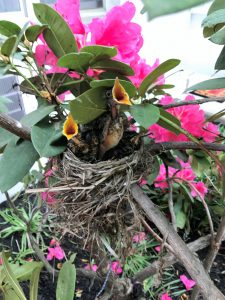 Isaiah 31:1
Isaiah 31:1
Woe to those who go down to Egypt for help, who rely on horses, who trust in the multitude of their chariots and in the great strength of their horsemen, but do not look to the Holy One of Israel, or seek help from the Lord (NIV).
We all are dependent. Self-sufficiency is a myth clung to by those who have failed to think deeply about life. We all receive help from others in many ways. Crises can unmask live-shaking experiences of this reality, but our need for trust is constant. For a common example (for those over fifty!), I just received a message to pick up a prescription from the pharmacy. I trust that the pharmacist puts the correct medication in the bottle. I also trust the prescribing physician, the drug manufacturer, etc.
More pressing needs, like severe illnesses and terrorism, compel people to exercise faith, to pray. Or perhaps they do. Our text teaches that people seek other solutions besides trust in the Lord. Israel, God’s old covenant people, serves as a teaching example for us in the new covenant age (cf. Romans 15:4; 1 Corinthians 10:5, 11). Isaiah spoke to Israel’s desperate situation. Strong nations encircled them, and they had an obvious need for protection from attacks and conquest by foreign powers. Need was not their problem or ours. God knows what we need. (See Matthew six.) It was what to do about the need. This brings us to a principle of faith.
- We need to avoid attractive, plausible alternatives. In Israel’s situation, the substitute for trust in God was to go down to Egypt for help. What made the alternative appealing was the power they could see, rather than the greater power that was invisible. Horses, chariots, and horsemen could be seen. Today, people depend on military might, on wealth and prosperity, on people of skill, and on the latest technology. Part of our difficulty is that we get caught up in the latest and greatest. For example, “Don’t give me an iPhone 4; it’s not even functional. I have an iPhone 7, but there’s so much it can’t do. I need the next version soon!” We long for what we can see with more power. We spiral down and away from God.
- We ought to understand God’s judgment on those who go down to Egypt for help. The Spirit of the Lord gave a terse verdict on those who put their trust in other things: Woe. It was a course of action that was doomed, that the Sovereign Lord would ensure was doomed. The Spirit wanted them to see the “poison” label and shun the alternative. To seek other help besides the Lord invites God’s judgment and ruin into our lives. What might look like a good solution becomes the portal to deeper and more destructive consequences.
- We should act in the way of God’s wisdom: look to the Holy One of Israel and seek help from the Lord. What is the point? From many passages in the Bible, it is clear that we are to use human means, since they are all gifts from God. So, this verse is not teaching some sort of passivity in which we do nothing. Instead, the Lord wants us to seek him first and to rely on him in the use of proper means. Yes, go to the doctor, take your medicine, and get proper rest and exercise. But first, depend on the living God for your health and other needs. We are to actively trust: seek help from the Lord.
The question is, “Will we trust in the Lord first in our next predicament?” God wants us to desire him first and above all. This is an important principle of trusting God.
Grace and peace, David
